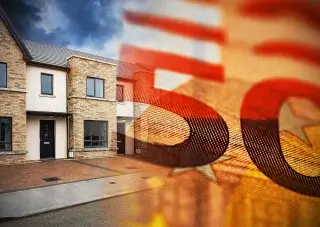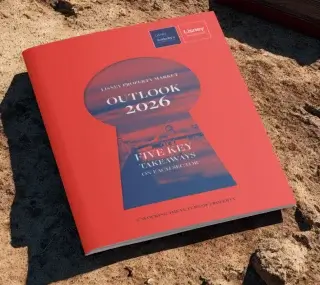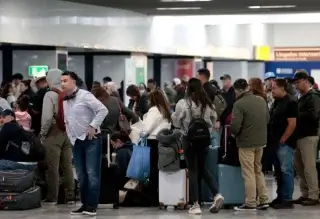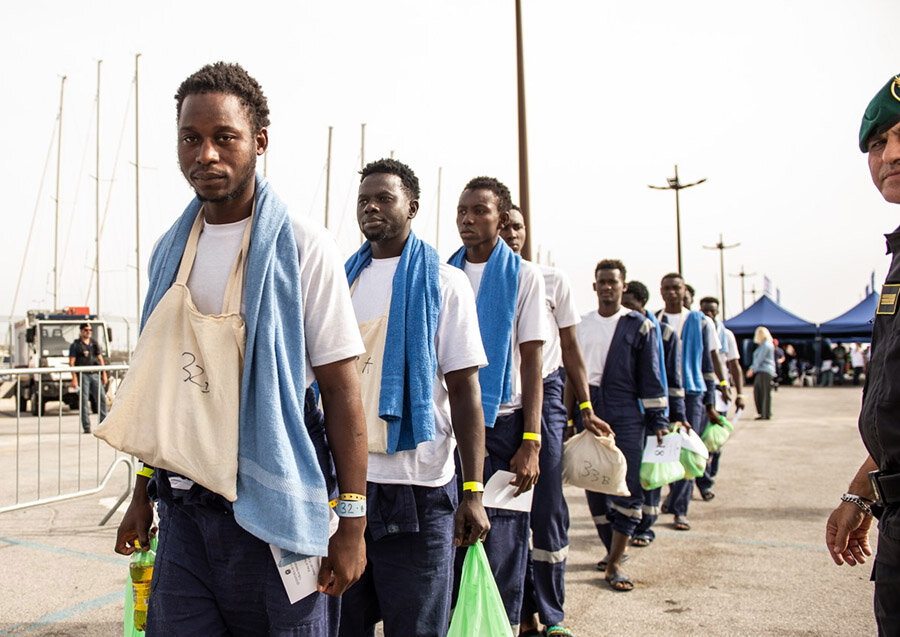read also
 Mortgage Approvals in Ireland Slump Sharply in January
Mortgage Approvals in Ireland Slump Sharply in January
 Lisney Property Market Outlook: Irish Property Market Poised for Steady Growth in 2026
Lisney Property Market Outlook: Irish Property Market Poised for Steady Growth in 2026
 Inflation in Romania Slows to 9.6% but Remains Above Forecast
Inflation in Romania Slows to 9.6% but Remains Above Forecast
 Riots in Mexico Disrupt Air Links to Resort Destinations
Riots in Mexico Disrupt Air Links to Resort Destinations
 UK House Prices Stabilise After 2025 Slowdown
UK House Prices Stabilise After 2025 Slowdown
 Israel Housing Market Eyes a Reset in 2026
Israel Housing Market Eyes a Reset in 2026
Deportation from Europe: EU Introduces Stricter Rules for Migrants

The European Union presented a new immigration policy on March 11, 2025, aiming to increase deportations, lengthen detention periods for illegal migrants, and establish "return centers" outside the EU for foreigners denied asylum, according to AP News.
Currently, only 20% of individuals ordered for deportation actually leave EU territory. EU Commissioner for Migration, Magnus Brunner, described this as unacceptable, emphasizing deportation decisions represent the entire European Union rather than individual member states.
The existing deportation rules, established in 2008, are considered too vague, allowing legal loopholes exploited even by convicted criminals who later committed terrorist attacks, The Times reports. Many rejected asylum seekers continue to live illegally within the EU.
Last year, slightly over one million individuals applied for asylum in the Schengen zone, down 11% from 2023 but still above historical averages. Approximately 42% of these asylum applications were approved. In 2024, the EU had already proposed a modernized migration management program, but member states failed to reach consensus on deportation methods.
The new policy includes uniform standards allowing deportation orders from any EU country to be enforced across the entire bloc. "Return centers," essentially deportation hubs, will be established in third countries. Italy and Albania currently use a similar model, though courts have blocked some deportation attempts. The EU aims to avoid these issues and intends to ensure that only those denied asylum are sent to these centers. Unaccompanied minors will be excluded. The EU itself will not manage these centers but will provide the necessary legal framework and seek agreements with third-country governments.
The policy also suggests stricter penalties for those evading deportation and extending detention periods from 18 to 24 months, particularly for migrants posing security threats. Migrants who commit crimes during their application review or are suspected of terrorist sympathies may face prolonged detention. After deportation, these individuals will be banned from entering the EU for 20 years; others deported will face a 10-year ban.
European Commission Vice President Henna Virkkunen described the proposals as tougher but fairer, hoping their existence alone would encourage voluntary departures and reduce forced deportations.
The Guardian notes the new rules will also affect foreigners with expired visas. The plans have received support from the center-right European People's Party, though Greens and left-wing parties have voiced concerns. The International Rescue Committee (IRC) raised questions regarding detainee rights in third countries and detention durations.
Marta Welander, the EU advocacy director at IRC, highlighted negative outcomes from existing migration agreements with third countries, including abuse, exploitation, and even deaths of migrants. Tineke Strik, a Dutch Green MEP, warned the return centers could lead to extended detentions, creating practical and legal risks. German Social Democrat MEP Birgit Sippel likened the EU’s new policy to former US President Donald Trump's mass deportation policies, calling it problematic.
The program will be reviewed by the European Parliament and EU member states. Experts note that despite a recent decline in illegal migrant numbers, stricter immigration measures reflect political shifts within the EU and persistent public demands for tougher rules.


